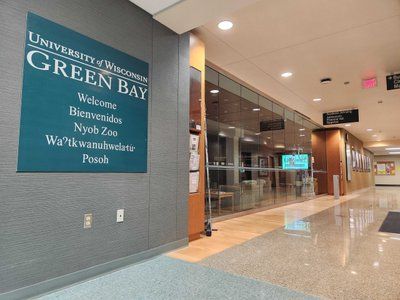By Tom Still
MADISON, Wis. – There was a time, and not so long ago, when Wisconsin didn’t show up on the radar screens of businesses and national site-selection consultants looking for places to grow.
The reasons ranged from “bi-coastal bias” toward states in the East and West, lingering impressions of a Rust Belt economy and perceptions that talent and ideas were more easily found elsewhere.
That has changed of late as those same businesses and site selectors have discovered that Wisconsin and other Midwest states offer affordable business costs, a strong physical infrastructure, an increasingly diverse economic base and creative people who aren’t afraid to set an alarm clock every work day.
Those factors and more are likely why Foxconn, the global firm known best for assembling Apple’s iPhones, is considering Wisconsin along with a few other states as places to build some sort of manufacturing plant.
That much alone is a win for Wisconsin, because other companies that might have deemed Wisconsin as “flyover” land in the past now see it as a place to land and stay. Regional economic development groups in parts of Wisconsin are seeing a surge in requests for information from site selectors, a process that began even before reports of Foxconn’s interest surfaced.
Here are points to consider as speculation swirls around Foxconn’s interest in building a plant in Wisconsin:
- Wisconsin won’t win a straight-up bidding war for a Foxconn facility. Other states on the list have deeper pockets for government incentives such as tax credits. If the competition comes down to a beauty contest over dollars, Wisconsin will be crowned “Miss Congeniality.” If other tangible business factors are considered, such as talent, location and overall costs, the state could be smiling and waving to the crowd.
- Don’t get fixated on predictions of 10,000 new jobs. In an age when automation is king, the actual number of jobs involved could be much smaller in a brand-new plant. It’s better to manage job-creation expectations, especially for the shorter term.
- This may not be a winner-takes-all sweepstakes. Because Foxconn has several divisions and product lines, it may be considering multiple plants with different functions. For example, the company acquired Sharp last fall, and may want to manufacture television and other display screens sets in the United States due to the size of its market. It could choose to produce other electronics elsewhere.
- A win for Racine or Kenosha counties would not be a loss for Rock or Dane counties. The supply-chain needs for Foxconn would be significant and could be locally sourced in many cases. Other industries that are core to Wisconsin – such as industrial equipment, power electronics, papermaking and medical devices – are part of larger clusters than have grown up around them in Wisconsin over time.
- It’s a team effort and better look like one. Company leaders don’t like political dysfunction because they can imagine getting caught in the crossfire. So far, it appears state government and local governments are playing well together in the sandbox. Republicans such as Gov. Scott Walker and Democrats such as Kenosha County Executive Jim Kreuser are on the same team. Higher education, public and private, will be involved in demonstrating the capacity of the state’s research and development sectors.
- The outcome of the state budget debate over transportation funding could affect Foxconn’s decision. If Walker and the Legislature don’t agree soon on a transportation funding deal, it might trigger unease among Foxconn executives who want to be sure products get to market via road, rail and air.
With a decision expected this summer, Wisconsin will know soon how it places in a beauty contest that may have more than one winner.





